Signature coffee beverages: Why innovation has never been so important
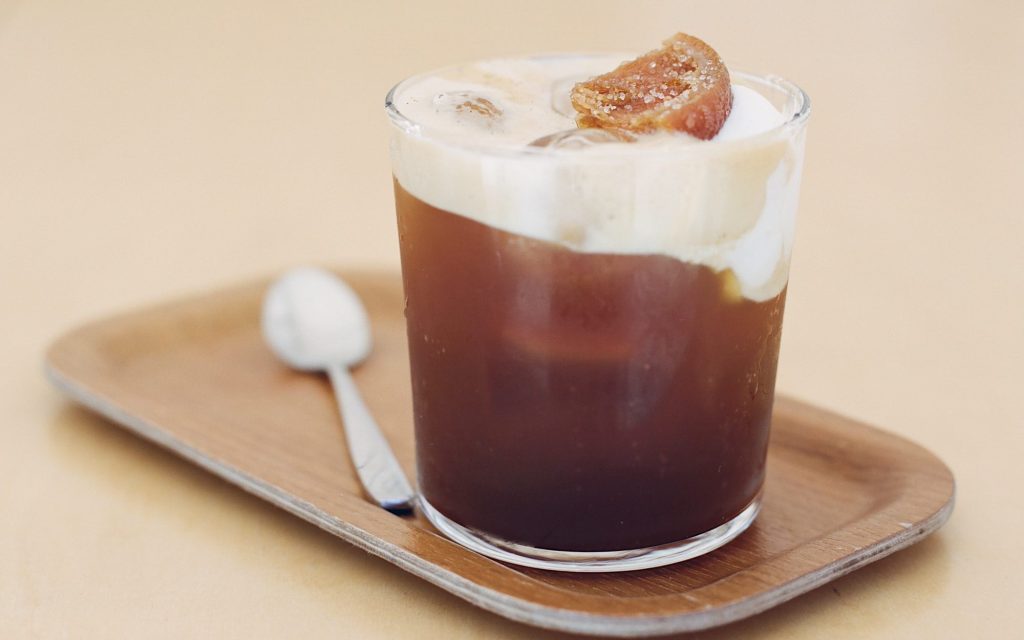
Around the world, signature beverages stand out on many coffee shop menus. Inspired and influenced by several pioneering coffee competitions, these drinks offer a unique and elevated experience for customers wanting to discover new and exciting flavours and textures.
But with more and more coffee shops starting to serve them, it’s important that café owners and baristas keep pushing for further innovation – and find even more creative ways to make a statement.
To find out more, I spoke to Reef Bessette, 2023 Coffee Masters Champion, US Barista Championship finalist, and co-founder of The Coffee Movement, and Rastislav “Rasty” Kasár, 2023 World Coffee in Good Spirits Champion and winner of the 2022 Coffee Masters.
You may also like our article on adding coffee cocktails to a coffee shop menu.
What is a signature beverage?
A signature beverage is a type of drink that not all coffee shop customers might be familiar with. Although they date back to well before the 21st century, they have had something of a resurgence in recent years – including in specialty coffee.
Signature drinks are usually made with locally-sourced ingredients, and also often include liquor and other alcoholic spirits. In many cases, a signature drink is a unique cocktail that has been created specifically for a particular establishment, such as a bar, restaurant, or coffee shop.
In the context of specialty coffee, the growing popularity of signature drinks can largely be attributed to competitions. Even the very first World Barista Championship (held in 2000) included a signature beverage round. Competitions like World Coffee in Good Spirits Championship and Coffee Masters, meanwhile, focus heavily – if not solely – on coffee cocktails and signature beverages.
Rastislav “Rasty” Kasar is the 2023 World Coffee in Good Spirits Champion and 2022 Coffee Masters winner, and currently works at Teddy’s Speakeasy in Athens, Greece.
He says a signature beverage is a cocktail that is created to serve a particular purpose, and can be alcoholic or non-alcoholic.
“It’s a beverage that a barista or bartender has made to express a certain thought or opinion they have, or to simply highlight the quality of the ingredients they have decided to use,” he tells me. “Their approach, skill set, and experience should set this drink apart from regular menu options.
“What makes a true signature beverage is the thought process behind creating it, as well as the execution, presentation, and ingredients used – and ultimately the glassware and garnish,” he adds.
What makes for a good signature beverage?
Reef Bessette is the reigning Coffee Masters NYC Champion. He says that creating a good signature drink comes down to balancing multiple ingredients and achieving synergy of flavours.
“I try to incorporate unusual ingredients, as well as using different beverage making techniques and more ‘elevated’ serveware,” he tells me. “Generally speaking, almost anything can be a good signature drink as long as it makes you think between each sip and keeps you coming back for more. It must be well balanced, complex, and delicious.”
Creating a truly great signature beverage is not easy, and ultimately boils down to creativity, skill, and knowing how to mix and achieve certain flavours.
Rasty says a good signature beverage consists of several factors:
Ingredients – high-quality, carefully-selected coffee that is prepared with great care. Other ingredients also need to be of equally high quality, and complement the coffee used
Purpose – advising customers as to when and how the beverage should be consumed
Story – the drink’s unique selling point, and an extension of it that builds excitement for the consumer
Execution – a way of showcasing the pure professionalism of the barista or bartender
Glassware – this plays a major role in the making and serving of the signature beverage, and is a critical part of its presentation
Garnish – functions as an ingredient that supports the core ingredients, and further elevate the overall beverage experience
Why have signature beverages become so popular in specialty coffee?
Coffee cocktails – such as the espresso martini – have long been popular. And as more customers look for unique experiences in coffee shops, signature drinks have become more prominent, too.
Rasty, however, thinks we need to see more signature beverages on coffee shop menus – especially alongside a growing appreciation for the skills of baristas.
“A signature beverage becomes an extension of what the barista believes in,” he says. “Ultimately, it’s about showcasing some sort of skill – combining flavours to create something new and pushing the boundaries of defining what a coffee cocktail can be.”
Reef agrees, saying that many cafés offer the same five or six classic coffee drinks that are usually very similar, while signature beverages can offer something new and different.
“One way to stand out is to offer something more creative – often inspired by craft cocktails or fine dining,” he tells me. “These are unique experiences that get people talking.”
A small but steadily increasing number of well-known industry professionals have started to capitalise on these opportunities, including in the form of omakase-inspired coffee experiences.
The Japanese phrase “omakase” translates to English as “I leave it up to you”, and is most commonly used when dining at Japanese restaurants. Essentially, the customer leaves it up to the chef to select and serve seasonal and more unique dishes – creating a more elevated and special experience.
Some examples of omakase-inspired coffee shop concepts include:
Cokuun, founded by former World Barista Champion Hidenori Izaki
Blue Bottle Studio, a creative endeavour by Blue Bottle Coffee founder James Freeman
Mikael Jasin’s Omakafé
Remaining on brand
For most coffee shops, adding one or several signature beverages can be an effective step towards offering something new and exciting for customers. But, of course, the decision mostly depends on their branding and their objectives as a business.
“I think it’s far more important to define the role of the coffee shop first, and then define what kind of signature beverage they would like to offer,” Rasty says. “My understanding of signature beverages is more in the realm of cocktails, but nothing should stop a coffee shop from serving a signature beverage including filter coffee, a syrup made from almond croissants, and clarified butter, for example.
“All it takes is having enough time to explain the thought process to our guests,” he adds. “A very important aspect of making a signature beverage is the time it takes to create it and serve it as we don’t want to drastically interfere with workflow.”
How can coffee shops innovate and look for inspiration?
As with many aspects of specialty coffee, emerging industry trends can be one of the biggest sources of inspiration for signature beverages.
Reef believes that fermentation has been one of the biggest shaping coffee beverages in recent years.
“Co-fermentation has impacted signature drinks in cafés and competitions by giving us coffees with clearly distinctive flavour profiles to work with as additional ingredients,” he says. “For example, a coffee co-fermented with cinnamon sticks creates an unmistakable cinnamon spice aroma and flavour.
“I think co-fermented coffees on their own can be one dimensional – with the fermented flavours taking over,” he adds. “But when added as an ingredient in a carefully crafted signature drink, they can be a game changer.”
Trends in other industries
In addition to drawing inspiration from trends in specialty coffee, baristas and coffee shop owners can also look to other industries.
“In the wider drinks industry, we look for clean refined glassware, twists on classic cocktails using seasonal ingredients, simple garnishes, fermented ingredients, and different textures and shapes,” Rasty says.
He also believes the wine industry also has the potential to impact signature coffee beverages.
“If we consider that winemaking has influenced coffee processing, we may also look to the by-products of wine production,” he tells me. “Instead of using lemon or lime juice in signature beverages, we could use verjus – a concentrated juice harvested from unripe grapes that is also highly acidic.
“We could also use popping candy as a garnish to remind guests of the sparkling sensation that certain wines have on the palate,” he adds.
There are many opportunities for coffee shops to use signature drinks to add something new and unique to their menus – but being creative and staying on brand are essential to success.
“In my experience, guests rarely experiment with flavours,” Rasty concludes. “We are creatures of habit, so what’s important is that we handle the ‘hard’ part and let customers enjoy flavours they never would have thought to combine.”
Enjoyed this? Then read our article on summer coffee cocktails you can make at home.
Photo credits: Kavalan Whiskey, Rastislav Kasar, Cory Sponsler
Perfect Daily Grind
Want to read more articles like this? Sign up for our newsletter!
The post Signature coffee beverages: Why innovation has never been so important appeared first on Perfect Daily Grind.
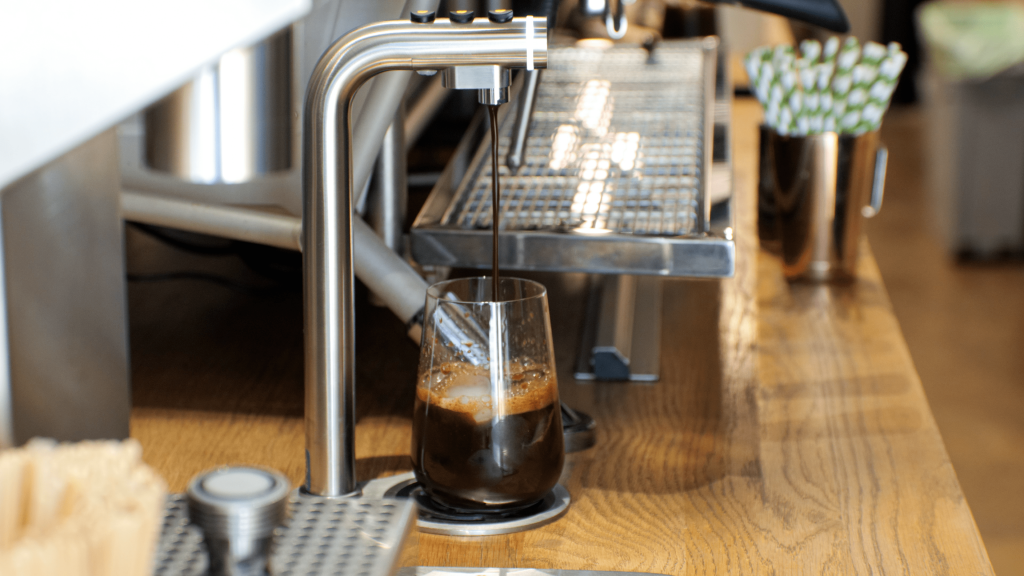
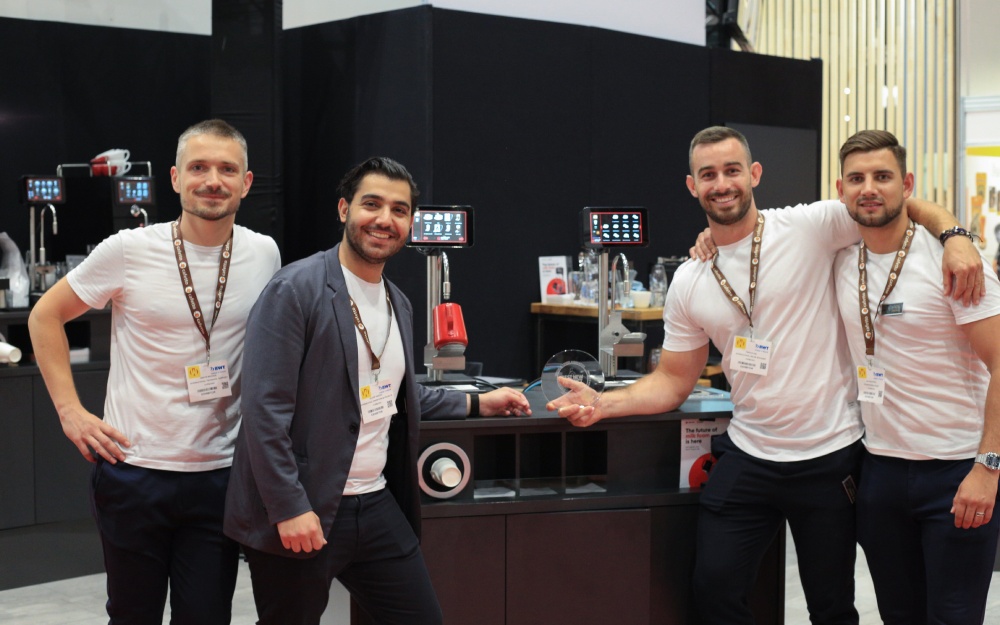
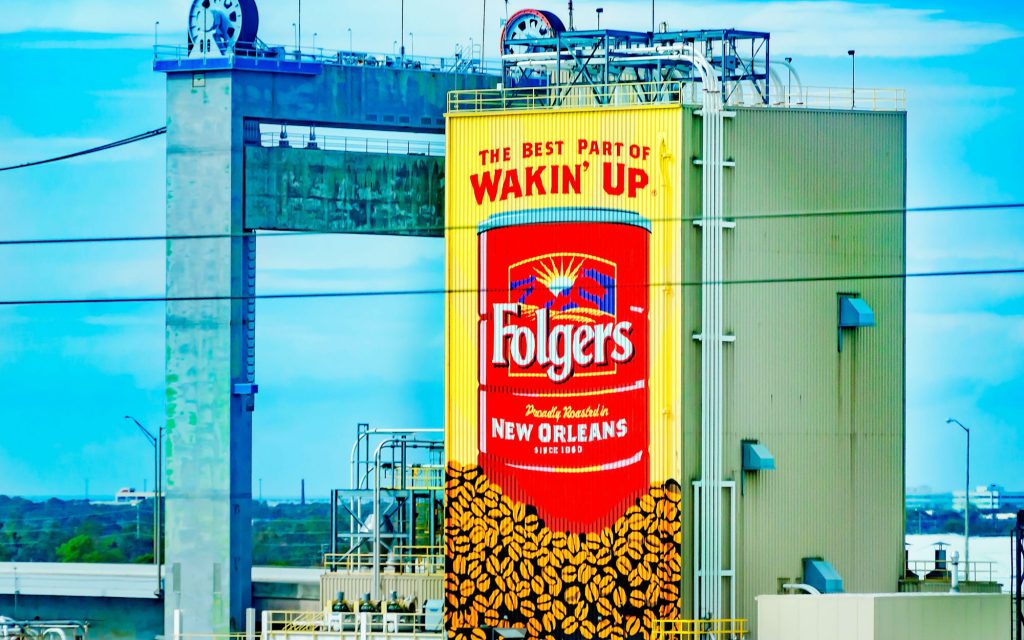
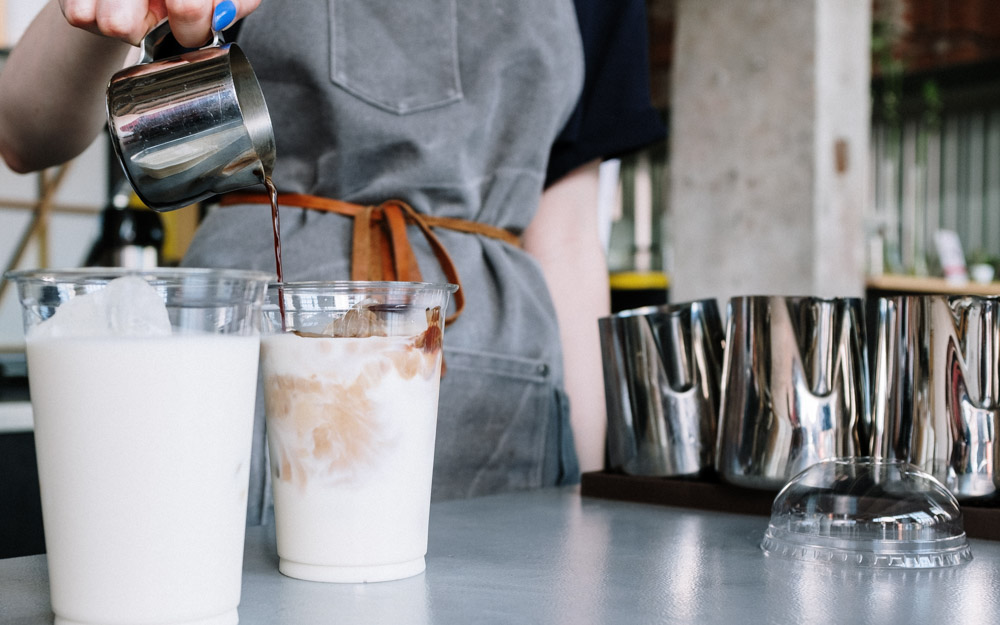
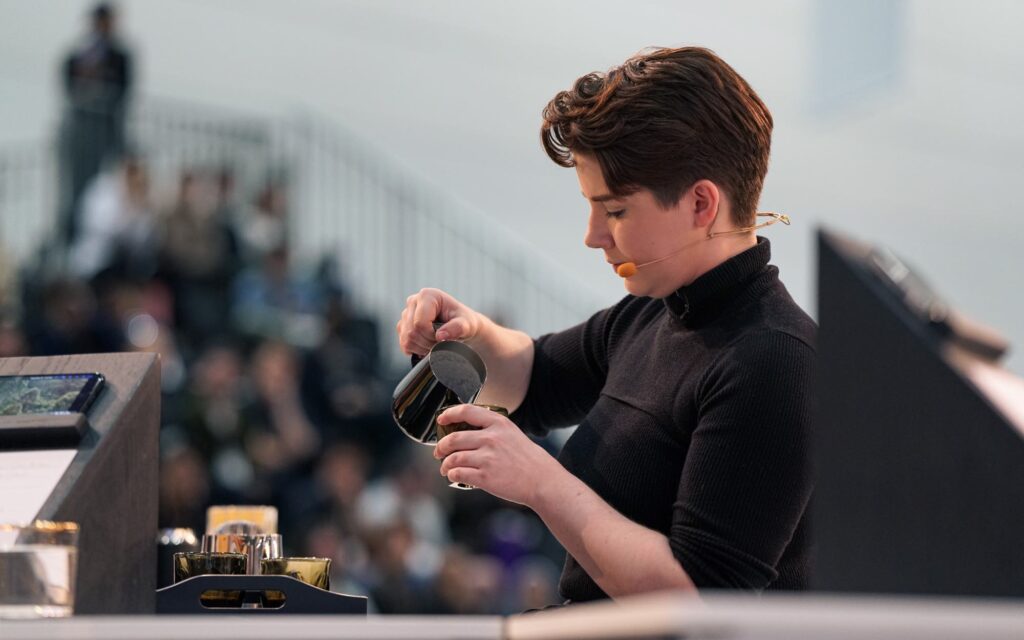
Responses